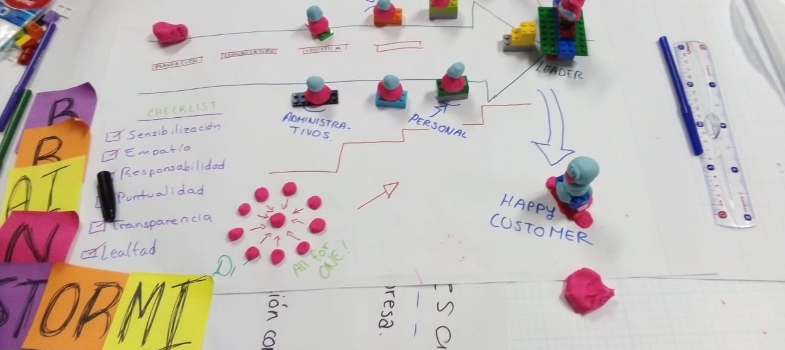Preparation 2: Design your workshop
Background
Being well prepared is important for constructivist, emergent and opportunistic learning to occur. The Employability by Design workshop teaches less than it relies on learning to occur. Learning happens through active hands-on and constructive engagement and the reflection on the activities. Facilitators guide participants through a set of activities. They may change the activities based on what happens in the room. Sometimes it makes sense to change the order of tasks or modify tasks based on the capabilities and the atmosphere in the room. Being well prepared to cover most eventualities and have alternative tasks and tools available is therefore essential for a successful workshop.
You need
- Finish reading through all recipes and (ideally) completed the training activities
- Your teaching team
- Notebooks and teaching diaries
- (optional) planning software or shared online resources
Method
Plan your workshop and use the Workshop recipe order to guide your planning, including:
- Decide who will lead each recipe
- Decide on the optional activities in the recipes
- Estimate the time required for each recipe
- Plan the timing of your workshop
- List the resources you will need for each recipe
As you do this, make a note of any issues that you will need to resolve as a matter of priority.
Example
When you plan out your workshop it can be useful to think visually and spatially too:
Potential limitations or challenges:
One of the hardest things about this recipe is that, if you have never tried these activities before, it can be really hard to imagine them. Once you have experience of them, your knowledge of them is different.
Training activity
Once you have completed reading the rest of the recipes, review your notes from the recipe activities and arrange a meeting with your teaching team to:
- Discuss all of the recipes and compare your notes from your teaching diary
- Use this recipe to plan your your first workshop
Advanced training
Use your teaching diaries to establish a general aim or specific goals for the next workshop design. These can be anything that responds to your previous experience but try to make them actionable and practical. For example:
- (Specific goals) Avoid three problems from last time: people turning up late; attendees getting tired at about 2 hours; overrun in time.
- (General aim) Try to make the even much more playful and fun to foster more creative ideas and experimentation
Redesign your workshop using your aim or goals to direct your ideas.
